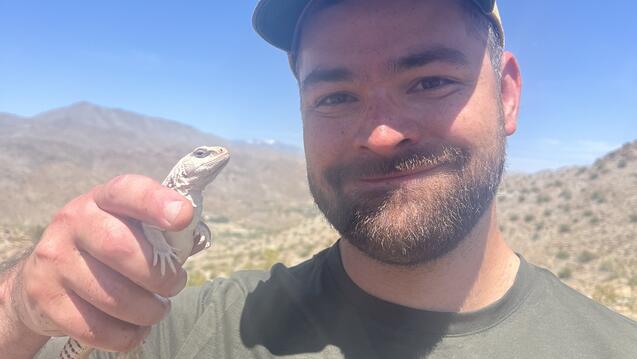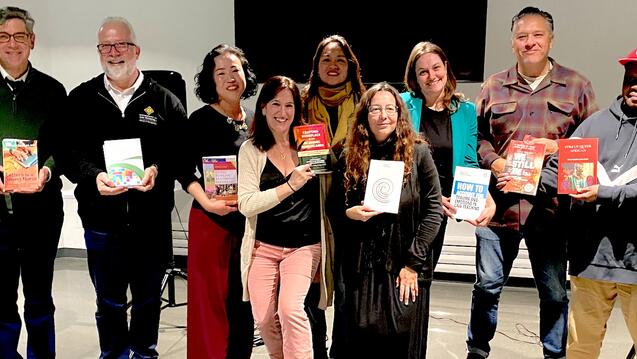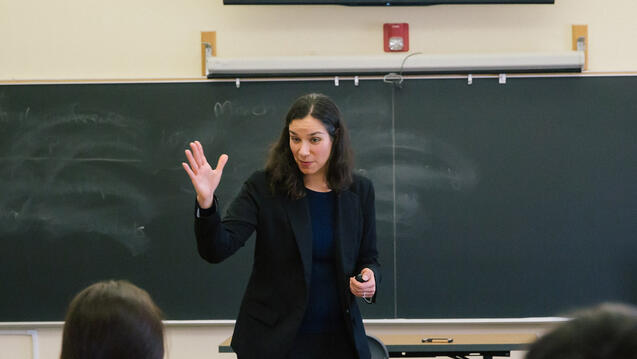On the Ground in Africa
If you equate thumbing through bibliographies in the Gleeson Library stacks with going out of your way for academic research, try “parachuting” into a remote African village to dig into microfinance, journalist intimidation, or the treatment of the mentally ill by spiritual healers.
That’s the type of research attendees of the first annual student research symposium, Bringing the Continent Home: Reflections on Africa, can expect to hear about on Nov. 11. The symposium, organized by the African Studies Program, will include research presentations by a handful African studies minors who spent the spring semester in a number of countries on the continent.
Topics include microfinance in northern Ghana, intimidation of journalists by the government in Cameroon, non-medical treatments of the mentally ill and disabled by spiritual healers in southern Ghana, the roots of marginalized groups in Sudan, and community conservation efforts in and around Rwenzori Mountains National Park, near Uganda’s border with the Democratic Republic of the Congo.
Praising the academic quality of the research, Heather Hoag, assistant professor of history and African Studies Program director, said the research not only enhanced students’ knowledge of African communities and enlarged their worldview, but also embodied the University of San Francisco’s mission to educate tomorrow’s leaders.
“From microfinance to press freedoms to the continuing crisis in Darfur, our students are contributing to a better understanding of the issues affecting African communities in today’s globalized world,” Hoag said.
That was the case for senior sociology major and African studies minor Christina Hebets, who was in Ghana from January to May studying the effectiveness of micro-lending. Micro-lending, which provides the poor with very small loans, has become a renowned tool for poverty reduction and women’s empowerment. Lending organizations, often non-governmental organizations (NGOs), target women entrepreneurs as borrowers, so they can manage and control their income.
“I did my research in the city of Tamale in the northern region, where 80-90 percent of the population lives on less than $1 a day,” Hebets said. “It’s incredibly hot and dry, making agriculture in rural communities an unreliable means for living.”
From Tamale, she traveled to rural and urban areas visiting with and interviewing the beneficiaries of such loans, Hebets said. Interviewing groups of women, all predominantly Muslim, was overwhelming and inspirational, she said.
In Uganda, senior international studies major Max Lucy, who is double-minoring in African and environmental studies, slept in mud huts and saw elephants, hippopotami, and crocodiles as he shadowed World Wide Fund for Nature (WWF) and Uganda Wildlife Authority (UWA) workers attempting to improve relations with remote communities.
Lucy studied community conservation efforts in the lush, mountainous areas bordering the Rwenzori Mountains National Park, where, up until recently, the strategy depended on driving out trespassers and poachers with armed rangers.
“Frustrated, the local Bakonzo community, who have lived in the foothills of the park for ages, accessing it for hunting and bamboo to build their homes, has been shut out from resources that are integral to their cultural integrity,” Lucy said.
Efforts now being piloted by WWF and UWA draw more on the Bakonzo community involvement, including hiring them as rangers and involving them in restoration projects, offer a new path using economic incentives for conserving the park’s resources, Lucy said.
The symposium, Bringing the Continent Home: Reflections on Africa, will be held from 5 p.m. to 6:30 p.m., Nov. 11 in the Maier Room, Fromm Hall.


